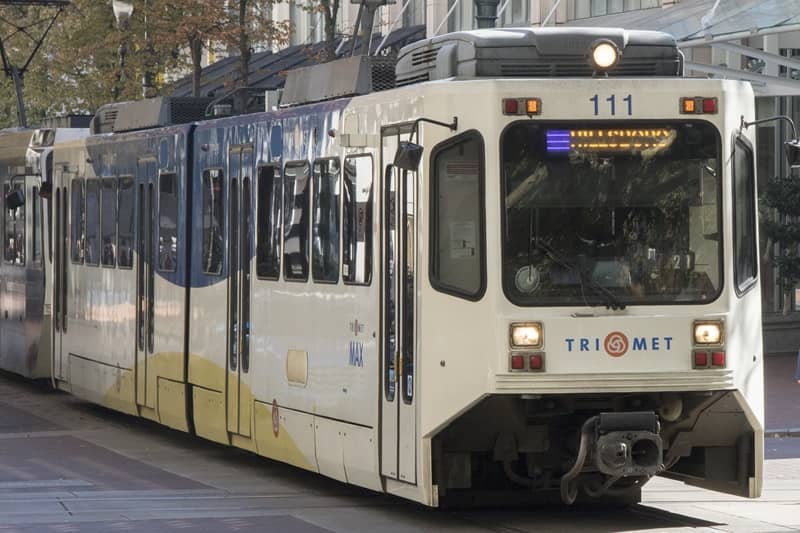 The Oregon House Select Committee on Education, chaired by Representative Linda Flores, is meeting to consider possible education reform legislation for the next legislative session which begins in January. On September 27, 2006 the committee heard from the Washington Scholarship Fund, which administers both a privately funded and a publicly funded voucher program in Washington, D.C., followed by testimony and discussion with Steve Buckstein and Matt Wingard of Cascade Policy Institute on the concept of school choice.
The Oregon House Select Committee on Education, chaired by Representative Linda Flores, is meeting to consider possible education reform legislation for the next legislative session which begins in January. On September 27, 2006 the committee heard from the Washington Scholarship Fund, which administers both a privately funded and a publicly funded voucher program in Washington, D.C., followed by testimony and discussion with Steve Buckstein and Matt Wingard of Cascade Policy Institute on the concept of school choice.
Not more money for education — more choice
By Steve Buckstein
September 27, 2006
I’m Steve Buckstein, Senior Policy Analyst and founder of Cascade Policy Institute in Portland. Cascade is a non-profit think tank. Our mission is to advance public policy alternatives that foster individual liberty, personal responsibility, and economic opportunity in Oregon.
You just heard about the Washington Scholarship Fund, which was founded in 1993 by New York philanthropist Ted Forstmann. In 1998, Mr. Forstmann and the late John Walton founded a similar organization to provide private scholarships to low-income students nationwide. They jointly contributed an initial $100 million to be matched by groups in cities nationwide to provide four-year K-8th grade private scholarships.
Believing that all Oregon families should have more choices about where their children go to school, Cascade Policy Institute helped raise one million private dollars from Oregonians, which were matched dollar-for-dollar by the national Children’s Scholarship Fund to provide four-year scholarships for several hundred low-income families in the Portland area. We raised more money later to extend the program another four years, and we’re now in our eighth year administering the scholarships. I want to tell you a little bit about the program and the families involved.
Children’s Scholarship Fund — Portland provides privately funded K-8th grade scholarships for any private or home school of the parents’ choice. The program assists students from families whose income qualifies them for the free or reduced price federal school lunch program. The families primarily live in Clackamas, Multnomah, and Washington Counties.
CSF-Portland scholarships may be used at any legally operating private or home school, and parents may change their children’s schools as they wish.
CSF-Portland has a seven-year track record of success, proving that low-income parents desire to take charge of their children’s futures through educational opportunity, and, when given a chance, do so. While their financial means are limited, CSF-Portland parents don’t believe that anyone else cares as much about their children’s futures as they do. They’re knowledgeable and determined to make any sacrifice to raise their children to be educated, responsible, productive citizens.
CSF-Portland believes that parental involvement is a critical element of educational success. Therefore, our scholarships are a “hand up,” not a “hand-out.” Parents demonstrate their commitment to, and involvement with, their children’s education by paying, on average, over half of the private school tuition themselves. When parents become involved in making their own choices about their children’s education, and make financial sacrifices to realize their goals, their relationship with teachers and administrators is strengthened, with positive results for the students, family, school, and community.
The need and desire for meaningful educational choice in Oregon is great. We got a hint of just how great when we first made our scholarships available in 1999. We had two million dollars available to provide four-year partial scholarships. We estimated that those funds would support about 500 children. With very limited advertising, the parents of 6,639 Portland-area children applied for scholarships. A random lottery determined which families won the scholarships, and we had to turn over 6,000 children away.
We continue to receive inquiries from low-income parents hoping that there are new scholarships to help their children attend the schools of their choice. So far, we’ve had to simply place these families on a waiting list because we’ve only been able to raise enough private funding to help our original students, while adding some of their siblings. We are seeking additional funding to enable us to award scholarships to new students.
Several years ago we asked a sampling of the families to tell us why they were willing to give up a “free” public education in order to receive just a partial private scholarship for their children. What we heard back was that most of them didn’t think that the public schools their children attended were terrible, they just wanted something better, and they wanted more control over what schools their children attended.
What they clearly didn’t want or need was for the state to put more funding into their children’s existing public schools. The average tuition in the private schools our scholarship recipients attend this year is $3,500. The average scholarship covers less than half that amount. So, out of an average income of just $32,000, these families are paying out of their own pockets something like $1,800 per child to exercise the choice that wealthier families can much more easily afford.
And remember, these low-income families are giving up a “free” public education that in the Portland Public Schools is worth about $9,000 in general funds, and about $12,000 per child in its all funds budget.
Even charter schools receive state funds equaling about $4,800 per child, which is more than the tuition in the private schools that our scholarship families have chosen.
Over the years we’ve received many letters of appreciation, both from parents and students, telling us how much they appreciate the opportunities our scholarships provide them.
Here’s what just one CSF-Portland parent says about the choices available to her family because of our scholarships:
“For us, vouchers don’t mean children of privilege going to prep schools. … [V]ouchers mean teachers getting to do what they do best, outside of a large bureaucracy. Vouchers mean parents of students of color voting with their feet instead of having to tolerate, for generations, underachievement. Mainstream kids have lots of choices. Let’s give the other kids some choices, too.”
Of the many letters we’ve received from our scholarship children, one really stood out, so we had it framed to hang on our wall at the Institute. It reads:
“Dear Children’s Scholarship Fund,
“Thank you for helping my Mom and Dad send me to Holy Redeemer Area School. You are good and nice. I’m nine years old and in third grade.
“I have two sisters, one in seventh grade and the other in kindergarten.
Best Wishes, Tia.”
Tia is now an eighth grader. She and her younger sister are still in the scholarship program, and her parents are both active, to the extent they have time, in the new chapter of the Black Alliance for Educational Options in Portland that you’ll hear more about in a moment.
In closing, I want to say that I understand how hard it is politically to even suggest that more money may not be the answer to our educational problems in Oregon. We all know that there are powerful special interests who will benefit from extra funding. But remember, we’ve doubled real per pupil spending, after inflation, since the 1970s, yet we still have thousands of low-income parents willing to forgo the “free” public education that money is supposed to provide.
Some of these parents are seeing their children thrive in the schools they’ve been able to choose because of our small private scholarship program. Many more such parents are waiting to see what you, the Oregon Legislature, will do to help them have similar opportunities. I hope you find a way to help make the dreams for their children’s futures come true.
Thank you.











